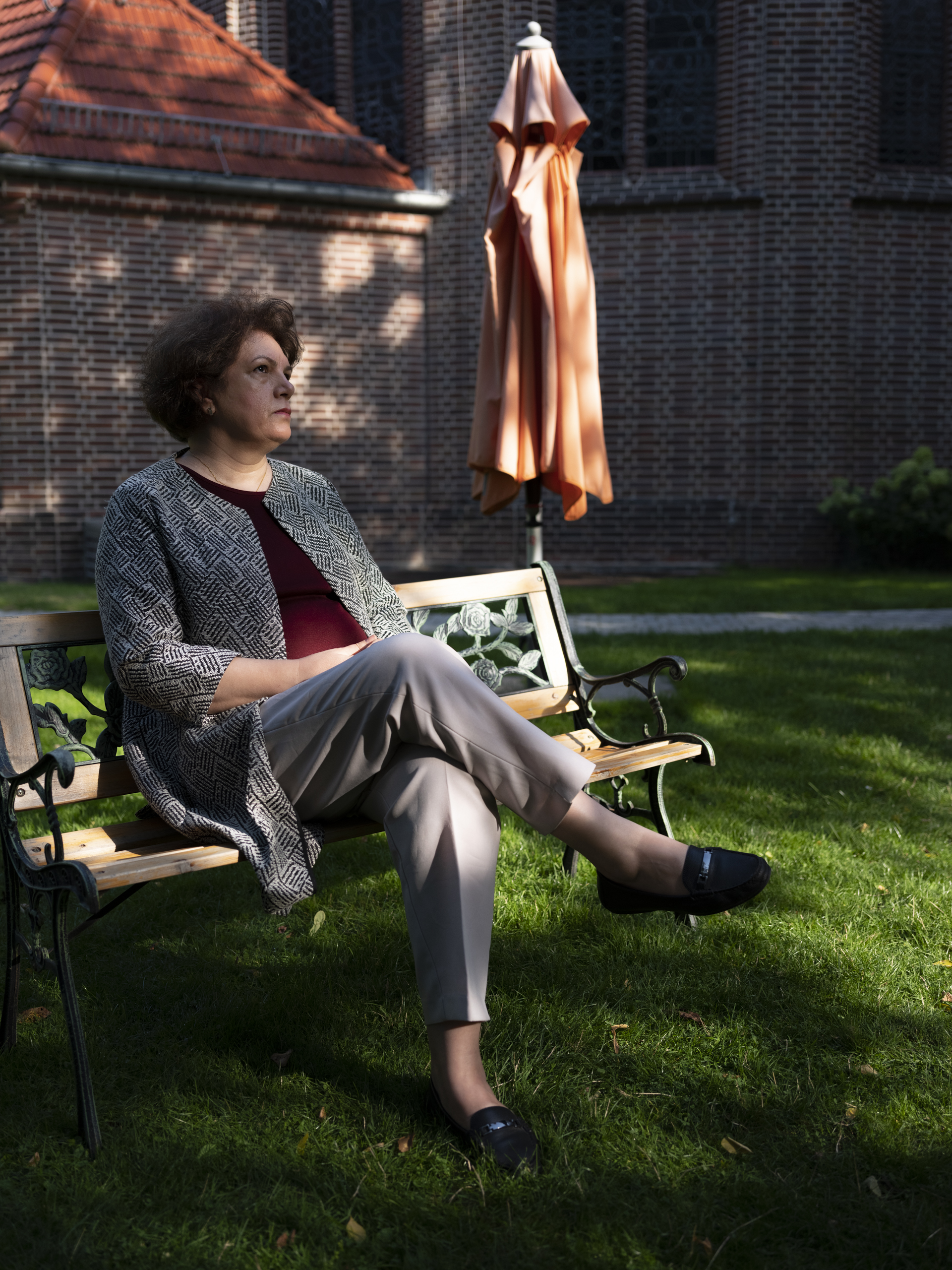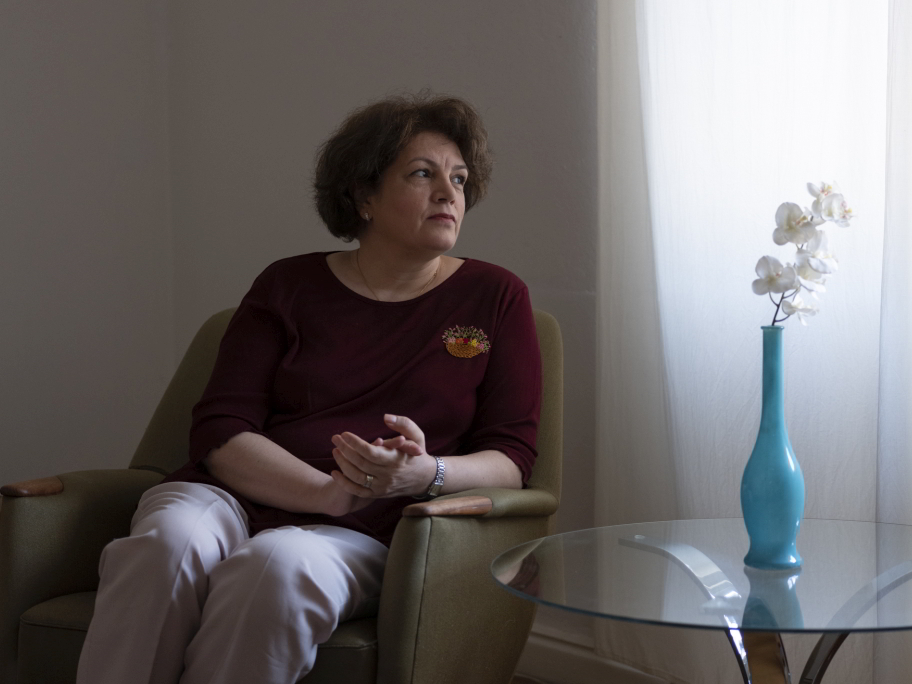Iran, Literature, 2020
Fariba
Vafi

“We’re a communicative people. We can talk for hours without putting a single line to paper, because to write is to take on responsibility.” Tarlan, the protagonist of Fariba Vafi’s eponymous novel, is told these prophetic words by a wise woman after publishing her first story. She should shoulder this responsibility and write, by all means, the wise woman said. But to write, you have to have lived. And in 1979, shortly after the Iranian revolution, young Tarlan is lacking in life experience. She has a long way to go before she finally finds her voice as a writer. “Tarlan” means falcon in Azeri, Fariba Vafi’s first language. But like most writers in Iran’s multiethnic society, Vafi writes in Farsi, her second language. It is of existential importance to Vafi that her novels and short stories find their way to readers, especially women readers.
Her first novel, Parande-ye-man (My Bird, 2002) was a singular event for modern Iranian women authors. In this beautifully written, finely-tuned tale of a wife and mother struggling for autonomy, Vafi probes societal taboos such as estranged mother-child relationships, unfulfilling marriages, and escaping into exile. But her handling of these issues is so understated that this book, like her twelve others, was able to pass through censorship, albeit not completely uncensored. Vafi aims to create female characters that are rarely portrayed in postrevolutionary Iranian literature, to give voice to those who are otherwise voiceless. The responsibility of the writer as metanarrative.
Tarlan is a coming-of-age novel about a budding writer in a women’s police academy shortly after the revolution. Through the stories of the other cadets, who hail from diverse social and ethnic backgrounds, Vafi paints a collective portrait of the women of her generation. As falcon-like as her fictional hero, the writer herself is a sharp observer of her environment and of her fellow humans. “A writer’s style depends on their view of life,” Fariba Vafi once said. Often she analyses the structures that destroy human relationships. “I try to understand their core, and criticize them. Within the community that we call ‘family,’ women try to resist the oppression and the violence that they often face in order to achieve some kind of independent identity.” Her gaze is incisive and unsparing, and yet full of humor.
Vafi’s stories are microcosms. In their almost incidental poeticism, they encompass emotions and structures that very nearly always also comprise a political element. Yet rarely is she as explicitly political as in Ba’d az pāyān (After the End, 2013). Zaynab Pasha, a guerrilla fighter from Tabriz, Vafi’s hometown, and an early advocate of women’s rights, serves as the protagonist’s role model. “Mama says I should honor Zaynab Pasha. That I should learn from her and not from Mama herself, because she’s been a blind bird all her life. She was convinced that she had gone through life like a blind bird. She couldn’t even say when, much less why, she had married.”
Text: Maryam Aras
Translation: Laura Radosh
Parande-ye-man
Nashr-e-Markaz, Teheran, 2002
Kellervogel
Rotbuch Verlag, Berlin, 2012 (Ü: Parwin Abkai)
My Bird
Syracuse University Press, Syracuse, 2009 (Transl.: Mahnaz Lousha and Nasrin Jewell)
Razi dar Kucheha (Ein Geheimnis der Straße)
Nashr-e-Markaz, Teheran, 2008
Un secret de rue
Zulma, Paris, 2011 (Ü: Christophe Balaÿ)
Tarlan
Nashr-e-Markaz, Teheran, 2006
Sujet Verlag, Bremen, 2015 (Ü: Jutta Himmelreich)
Rowya-ye-Tabbat
Nashr-e-Markaz, Teheran, 2007
Der Traum von Tibet
Sujet Verlag, Bremen 2018 (Ü: Jutta Himmelreich)
Ba’d az pāyān
Nashr-e-Markaz., Teheran, 2014


